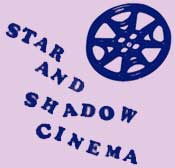Finzan (MALI)
Dir. Cheick Oumar Sissoko (Mali), Bambara, with English subtitles, 1989
-
Thu 17 September 2009 // 19:30
/ Cinema
"A passionate and convincing plea for the emancipation of African women." - NEW YORK TIMES
THE STATUS OF WOMEN
The status of women in rural Mali, is the subject of Finzan.
Nanyuma, a young widow defies her brother-in-law, the village fool, when he asserts his traditional right to "inherit" her. Fili, a young woman sent from the city by her conservative father, is brutally "circumcised" by village women, scandalized by her refusal to submit to this ancient ritual.
Sissoko weaves these two stories together into a painfully realistic picture of village society unable to free itself from the past.
REVIEWS
"In Finzan, Cheick Oumar Sissoko has skillfully crafted a film which raises one of the most important issues of African rural life, the status of women, in a style accessible to every villager. " - CALIFORNIA NEWSREEL
"Bracing, wholly exhilarating... dedicated to the African woman." - VILLAGE VOICE
"Finzan, which opened on Thursday at the Public Theater, is a passionate and convincing plea for the emancipation of African women. Beyond its political agenda, it also offers a portrait of rural African life that conveys a richly textured sense of day-to-day existence in the village. " - NEW YORK TIMES
IN THE WORDS OF THE DIRECTOR
CINEMA AS A POLITICAL TOOL
"Cinema came out of a necessity to be able to communicate, to exchange with other people. Our continent is so very rich and so very beautiful, but also very behind. A continent that is coming out of colonialism, and consequently has practically nothing. How do we bring this change in power to the people? It is this question that made me choose to work in film. It is to show social progress, therefore I focus on the obstructions to progress, the struggles of our continent. (...)
Overall, he or she can try to bring the audience to understand, through construction of the narrative, their rights and duties as Africans."
Cheick Oumar Sissoko in a great interview on the site of Bomb Magazine
BACKGROUND ON THE DIRECTOR/FILM
 Great information taken from an American website looking at world films here
Great information taken from an American website looking at world films here
"Political involvement is in Malian film director Cheikh Oumar Sissoko's family history; one of his mother's brothers was a famous anti-colonial activist, who went on to support a pan-West African federation and was eventually jailed after a Western-inspired coup d'etat in 1968.
Sissoko, born in 1945, received his higher education in Paris, having attended both the Ecole des Hautes Etudes-Sciences Sociales and the French national film school. He returned to work in Mali, where he has worked as the head of a Malian government agency producing documentaries and newsreels.
Asked about his inspiration, Sissoko said, "Italian neorealism first and foremost. This was the cinema that linked art to real life. Cinema should be consciousness-raising. I originally wanted to do documentaries, and my first film was a documentary. But I wasn't heartened by the experience, because documentaries are simply not seen; they're shelved. I had to make fiction so that my ideas would get out."
Sissoko previously made a 35-minute documentary called Rural Exodus (1984), about the drought crisis for the peasantry; and the neorealist-style feature Nyamanton (Garbage Boys), about poor urban children's lives."
IMPORTANCE
Taken from the same website here
"In Mali, the film was widely embraced in the urban cinemas where it was first shown. Criticisms within Mali focused on the fact that only one woman's issue was addressed--a criticism that Sissoko interpreted as reflecting the paucity of films about women.
In the US, the film debuted to positive reviews, simultaneously at the San Francisco Film Festival and at Filmfest D.C., and has been seen primarily as part of the Library of African Cinema. Its importance lies partly in its subject matter, as one of only a handful of films to deal with controversy over women's health."
